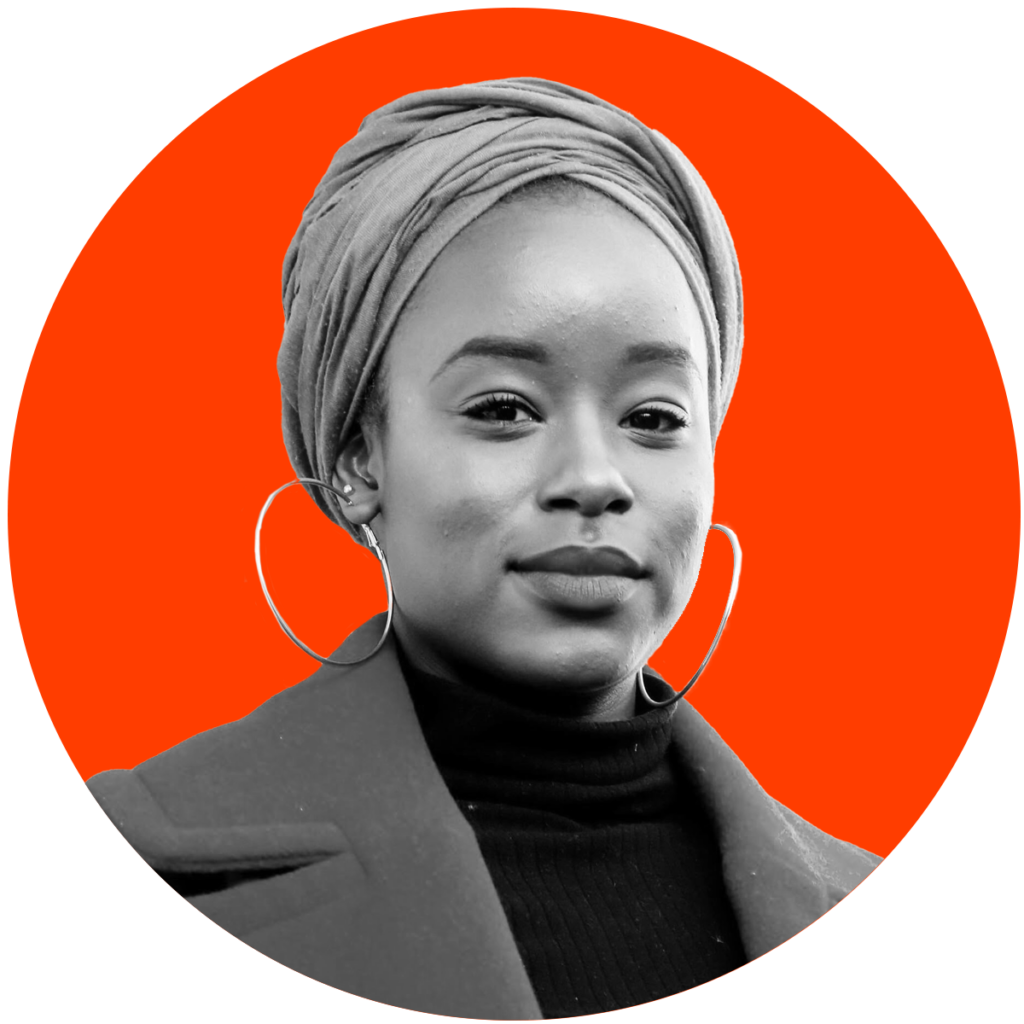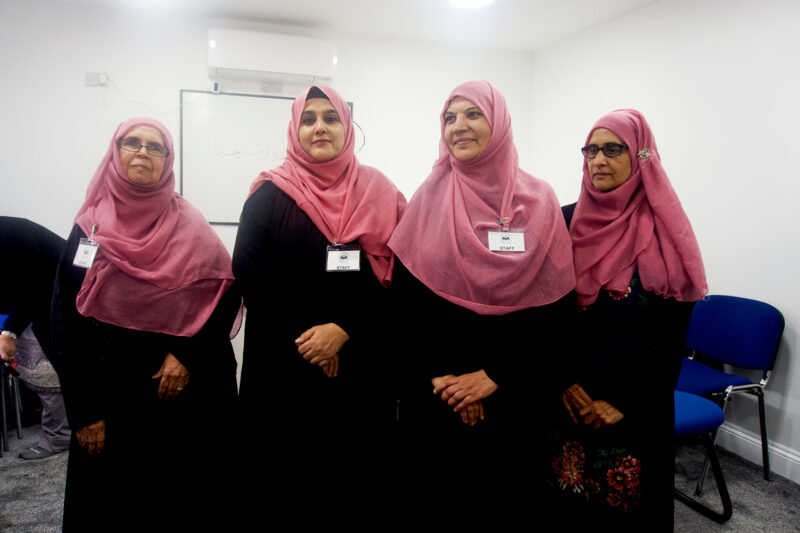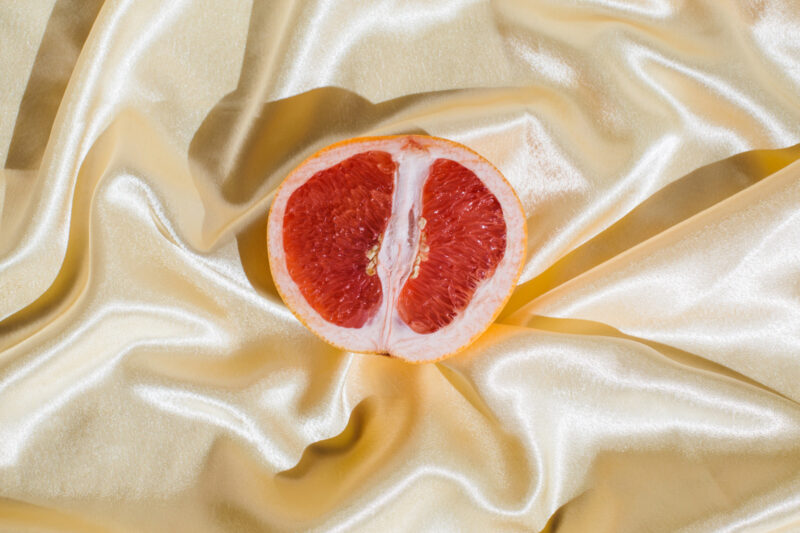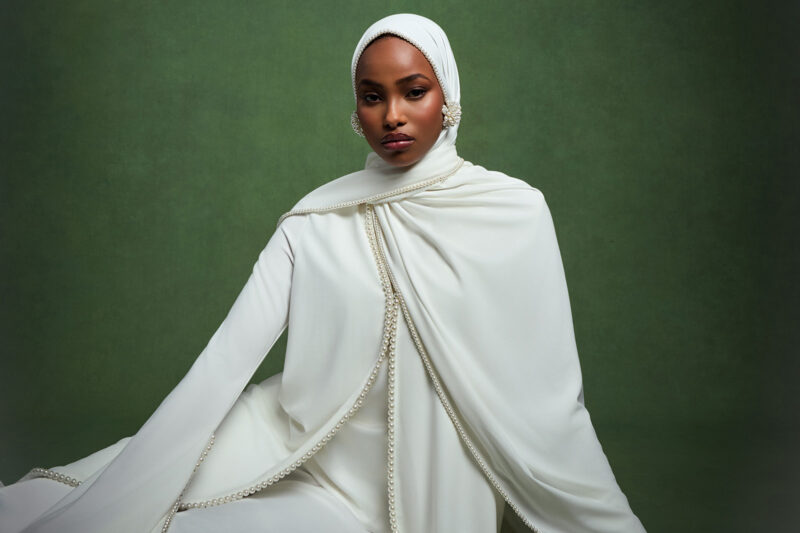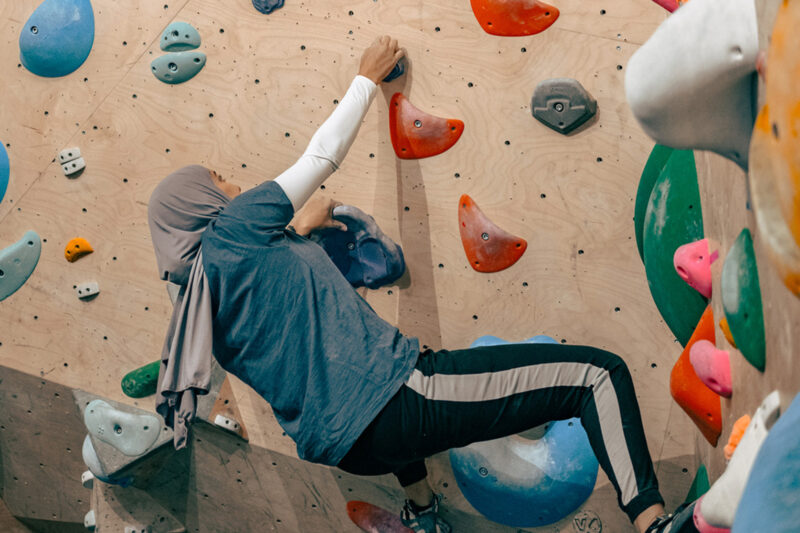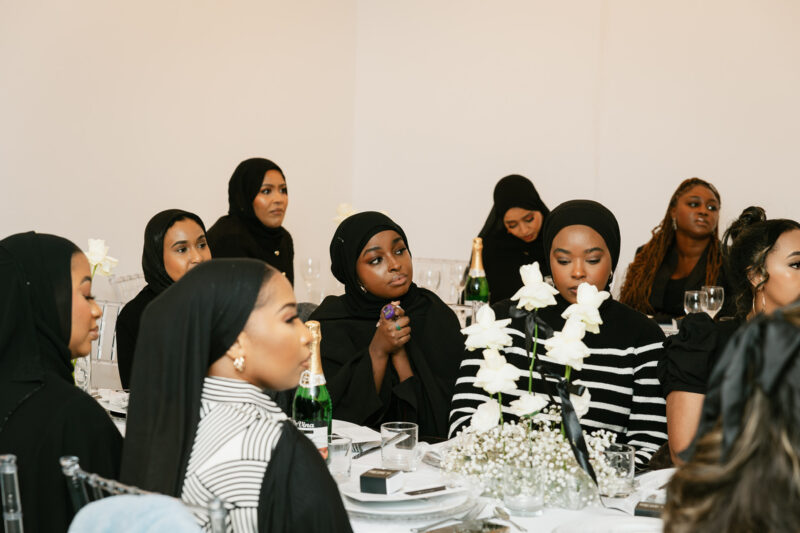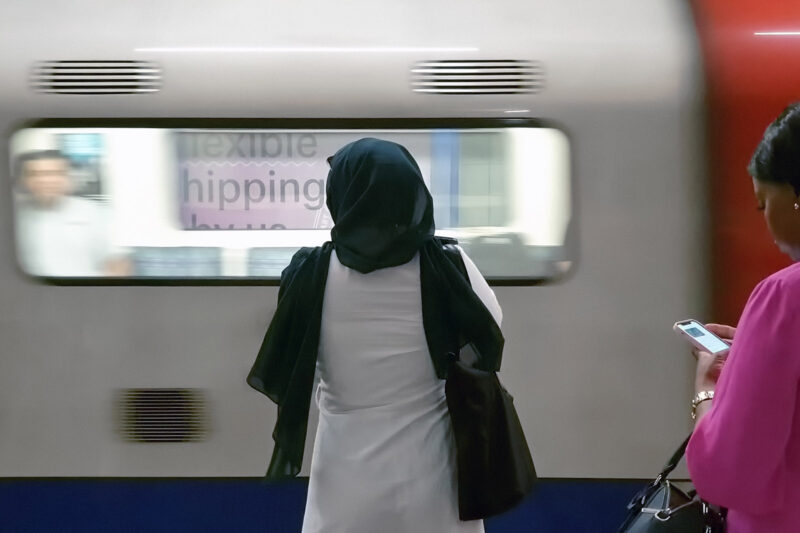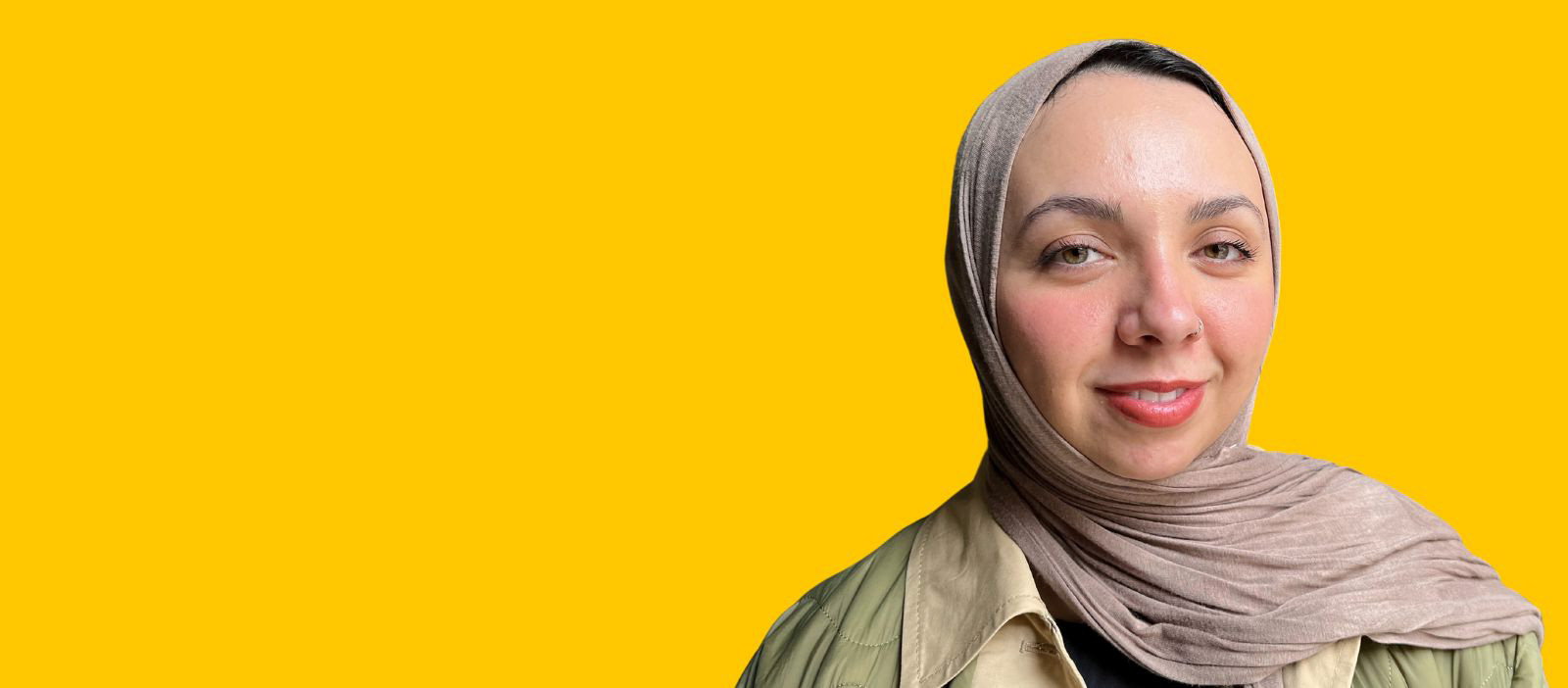
Nadeine Asbali Q&A: ‘Wearing the hijab and still living your life is the most effective way you can resist’
Nadeine Asbali wants readers of her book to understand ‘we’re not oppressed and we’re not being controlled by a misogynistic husband or dad’. Photograph courtesy of Nadeine Asbali
The journalist and teacher on her debut book about navigating life as a hijab-wearing woman in Britain
Nadeine Asbali’s debut book, Veiled Threat, explores how the 29-year-old British-Libyan’s life changed after she decided to start wearing the hijab at age 14 while on a family holiday in Libya.
Before her trip, she unknowingly passed as white, owing to her English mother. But on return to her home in Northampton, Asbali was soon exposed to the reality of what it means to be visibly Muslim in Britain.
Asbali, now based in east London, is a secondary school teacher and freelance journalist who writes about education, identity and motherhood.
She spoke to Hyphen about faith, the hijab and why her book is a way for her to reclaim the narrative on a contentious topic often debated by individuals who don’t wear head coverings.
This interview has been edited for length and clarity.
What do you want readers to understand about hijab-wearing Muslim women?
I want them to see the hijab as not a big deal, but at the same time, I want them to also understand the significance of it to us. I want them to understand that we’re not oppressed and we’re not being controlled by a misogynistic husband or dad. We wear the hijab because it can bring us a sense of spiritual solace and it allows us to reject the male gaze. I’d like readers to see us as humans and not just the scarves on our heads.
What would you go back and tell your 14-year-old self?
I first started wearing the hijab while on my summer holidays in Libya, so I was in a bit of a bubble for a couple of weeks. It was seen as a positive thing until I came back to the UK. But I’d still tell myself to persevere like I did. I was angry at how this country I had always known as home was now turning against me, but I didn’t let those perceptions change my mind.
You wrote about the misogyny Muslim women can face from Muslim men – were you concerned about reaffirming stereotypes?
I try to encapsulate the bind that society places Muslim men in through Islamophobia whilst also acknowledging how, often, we Muslim women are the victims of misogyny within our own communities. I explore different portrayals of Muslim masculinity from the “akh right” [Muslim alt-right] to brave Palestinian men resisting oppression.
I was very conscious that someone could pick up the book and run with the negative narrative surrounding Muslim men. It’s really hard being a Muslim writer because you feel responsible for how you’re portraying your own community. I hope I managed to portray the reality for Muslim women, but also looked at why that strain of masculinity is one that’s been allowed to fester.
In the book, you touch on feeling ‘invisible’ as a Muslim mother – could you say more about this?
When I had my son, it was as though I had finally fulfilled my role as a Muslim woman. Motherhood is important in our faith, but I don’t think there’s any room within our community to feel like you’re struggling or talk about things like postnatal depression or mental health. Many of our grandmothers had lots of children and it’s as though you can’t be struggling with just the one.
As a teacher, do you think schools are doing enough to educate children about Islamophobia?
Things at the moment for Muslim students are quite scary. There seems to be a push to remove their identity from them entirely. Teaching in east London and Muslim-majority schools, I’ve seen the criminalisation of young Muslims. We can see this in the recent debate around praying in schools and how Muslim students are perceived as a threat and something to be policed.
A lot of schools in east London have issued an outright ban on any signs of pro-Palestinian support. If you compare that with how they dealt with Ukraine, it’s just worlds apart. It just goes to show that any political expression coming from a Muslim is seen as extremism.
What did you learn about yourself through the course of writing the book? Did any of your views change?
I was worried that the conclusion would sound quite angry because writing the book revived all those feelings I had inside of me as a teenager. Writing the book taught me that the way Britain treats overt and visible Muslim identity is bad and it wasn’t just in my head, or me being sensitive. It made me realise this is a wider issue. It also gave me a renewed sense of motivation to use my voice. As Muslim women, the biggest act of resistance we can do is putting pen to paper and putting our stories out there.
What advice would you give a Muslim woman about wearing a hijab in Britain today?
It’s going to be hard, but you can’t let racism win. The hijab is a form of resistance, particularly against the Islamophobia from our government. Wearing the hijab and still living your life is the most effective way you can resist. If you allow the government and society to dictate how you live your life, you’re essentially giving in. So just be unapologetic.
 Newsletter
Newsletter

